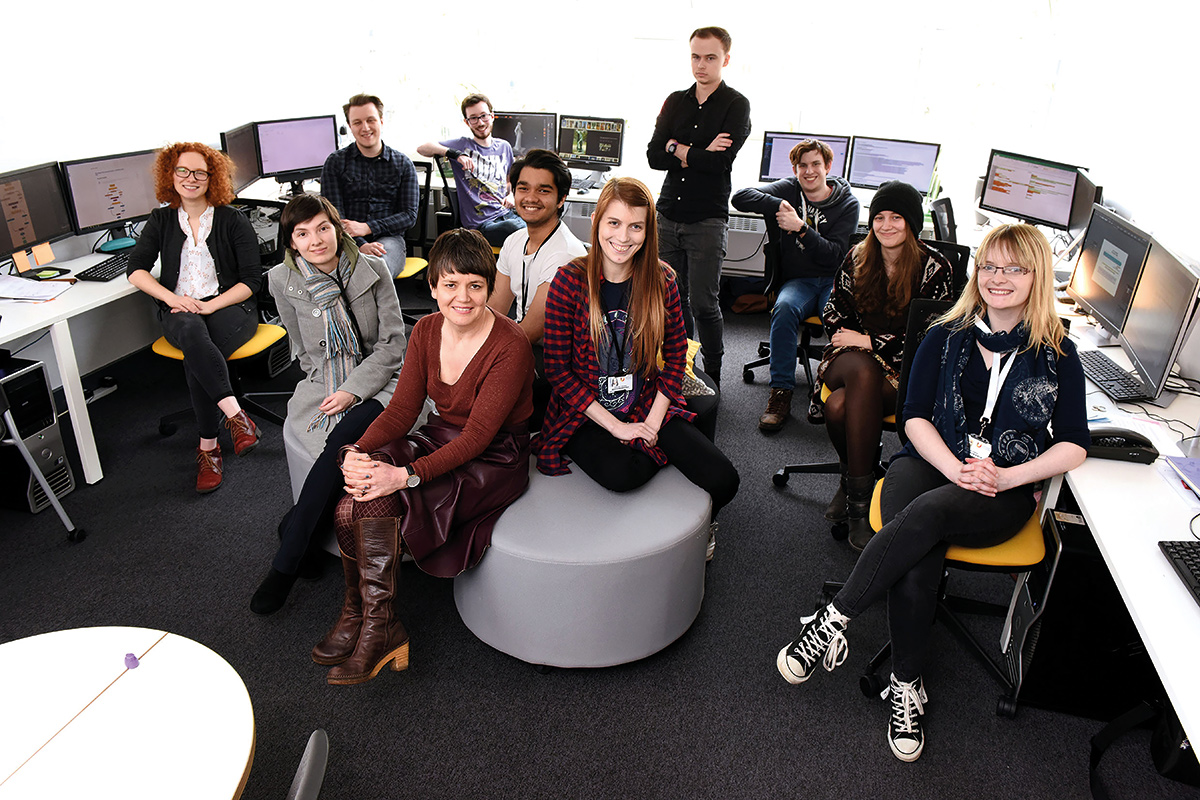...but how do you get it into your business? Partnering with a local uni is one way of doing it. Just take a look at the Teesside Advanced Practice Internship programme.
The difference a university education can make to an individual’s life chances is widely recognised, but what about the impact on business of going to university?
The 2013 government-commissioned review - carried out by Sir Andrew Witty, the former chief executive of GlaxoSmithKline - recommended that universities should act as drivers of growth and establish a single point of contact for business enquiries. Having taken this on board Teesside University - through its department of academic enterprise - has done just that. A single phone number and email address puts enquiring companies in touch with a business development manager who can work with them to understand their needs and work on a suitable programme of support.
“We want to make the whole process as seamless as possible for businesses,” said Laura Woods, director of academic enterprise. “We’re a large organisation and companies aren’t always aware of the scope we can offer, so having ready access to someone they can talk to and who can put together the right package and manage the process is crucial. It’s an approach we find our partners like, and it has helped us to achieve Customer First accreditation five times in succession.”
A key part of the academic enterprise department is the student futures team, which acts as the link between the business community and the student body. Every full-time undergraduate at Teesside University is guaranteed a work-related experience, and as well as helping to ensure that academic and extra-curricular programmes include those all-important employability skills and opportunities, the student futures team works closely with undergraduates to provide them with the right careers support and work experience to make sure they add value from day one in the workplace.
For postgraduate students, the university’s new ‘Advanced Practice Masters’ programmes provide a range of work-related options, including internships and other work-based projects that give businesses the opportunity to take on a Masters-level student for three months - or to benefit from the work of a postgraduate team on the delivery of a specific project with academic supervision.
The industry-based project is a module contained within a number of two-year Masters programmes that have been specifically developed to align with international postgraduate qualifications.
Teesside University is currently offering Advanced Practice Master’s in 14 degrees ranging from MAs in Design and Visual Communication through to an MSc Energy and Environmental Management, and has plans to grow this offer even further.
Internships normally start in September and January, and because they form part of the degree, there is no need for the employer to pay the intern.
“The Advanced Practice Internship is a fantastic opportunity for a business to bring in a talented postgraduate student who can work on a project or tackle a problem or a specific operational need. It’s particularly useful for smaller businesses that might not have the time or resource to dedicate to a single project,” says Norman Day, head of student futures at the university. “Because the student works alongside an academic supervisor and is not left to their own devices, it’s almost like a mini-consultancy.
“We can work flexibly with companies to meet their needs. So, for example, if the company doesn’t have space or facilities for the intern to use they can be based here and access the university’s facilities.
“It’s also of enormous benefit to the student as they are getting the chance to work on a live project and getting meaningful graduate-level experience. Many of our interns have gone on to be offered permanent positions at the companies they’ve worked for.”
While the Advanced Practice Internships are a relatively new addition to the university’s business engagement portfolio, there is considerable experience of working alongside industry on similar projects. For instance, recent collaborations have included work with an ethical sportswear company to develop innovations in dye-sublimation printing to produce prints on garments made from material produced by recycled bottles. The university has also helped recruit graduates for roles in leading brand and corporate design agencies such as Browns Design and Sapient Razorfish.
Dr Ruben Pinedo-Cuenca, business innovation manager in the university’s school of science, engineering and design, adds: “We pride ourselves on our ability to be responsive to the needs of industry and deliver the solutions that help businesses to succeed.”
Got to be a golden buzzer moment! For more info on the education-into-business programmes go to www.tees.ac.uk/business


